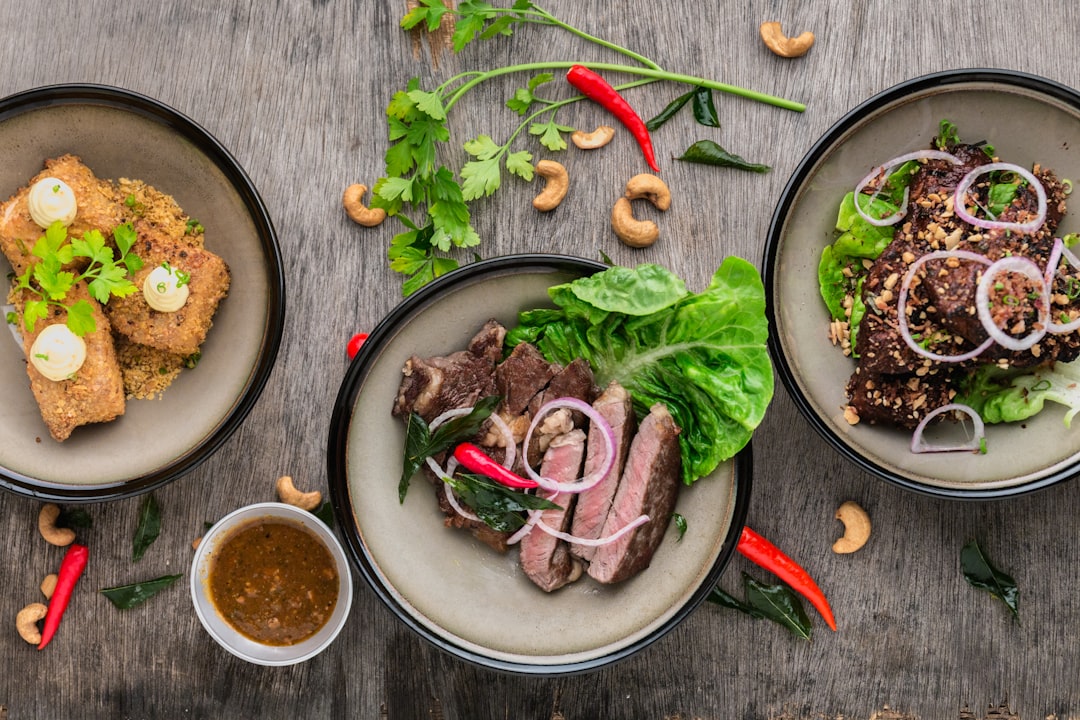Introduction: The Heart of Greek Cuisine
Greece is a country steeped in rich history, stunning landscapes, and diverse cultures. However, one of its most vibrant expressions is undoubtedly its culinary traditions. From the sun-drenched islands of the Aegean to the mountainous terrains of the mainland, Greek cuisine reflects a unique blend of flavors, ingredients, and techniques. In this article, we will take a deep dive into the culinary traditions of Greece, exploring the dishes, local customs, and cultural significance that make this Mediterranean cuisine a true delight. For those seeking an authentic experience, knowing the Greek culinary landscape is essential. Whether you are a food lover or a curious traveler, let’s embark on this flavorful journey!
1. The Basics of Greek Ingredients
The foundation of Greek cuisine is based on fresh, high-quality ingredients sourced from local farmers and the sea. Some staples of Greek cooking include:
- Olive Oil: Known as ‘liquid gold’, Greek olive oil is a staple in almost every dish, used for cooking or as a dressing. The production of olive oil in Greece is a time-honored tradition, with trees that sometimes reach over a thousand years old.
- Feta Cheese: Brined and crumbly, this iconic cheese is used in various salads, pastries, and savory dishes. Authentic feta cheese, made from sheep’s milk, is a must-try for its tangy flavor.
- Seafood: With a long coastline, Greece offers an abundance of seafood, including fish, octopus, and shellfish that are grilled, fried, or served fresh. Sampling grilled octopus in a seaside taverna is an experience not to be missed!
- Vegetables: Seasonal vegetables such as tomatoes, eggplants, and peppers are central to Greek dishes, often featured in salads and stews. The use of fresh herbs to season these vegetables brings out their natural flavors.
- Herbs and Spices: Oregano, thyme, basil, and dill are used extensively to enhance flavors. Greek cuisine emphasizes simplicity, where the freshness of each component shines through.
Suggested Tour: Immerse yourself in the flavors of Greece by joining unique culinary tours that showcase local cuisine and traditional cooking classes. Consider booking through (https://gyg.me/6zEBQdqh) for an unforgettable culinary adventure!
2. Iconic Greek Dishes You Must Try
When exploring Greek culinary traditions, several iconic dishes deserve your attention:
- Moussaka: A rich casserole made of layers of eggplant, minced meat, and béchamel sauce, baked to perfection. This dish has a comforting warmth that reflects the Mediterranean sun.
- Souvlaki: Grilled meat skewers, usually served with pita bread, tzatziki, and fresh vegetables. Each skewer bursts with flavor, often accompanied by a squeeze of lemon juice.
- Dolmades: Grape leaves stuffed with a flavorful mixture of rice, herbs, and often minced meat. This dish is a quintessential example of Mediterranean cooking that emphasizes balance and flavor.
- Spanakopita: A spinach pie wrapped in flaky phyllo pastry, often enjoyed as a snack or appetizer. The combination of fresh spinach and creamy feta is irresistible.
- Baklava: A decadent dessert made of layers of phyllo pastry, nuts, and honey syrup, epitomizing Greek sweetness. This treat is beloved not just in Greece, but across the world.
Each dish carries cultural significance and tells the story of Greece’s rich history. Visitors who are eager to taste authentic Greek food will find local tavernas offering these signature dishes, often prepared using traditional recipes passed down through generations.

3. Greek Food Customs and Dining Etiquette
Understanding Greek dining customs enhances the culinary experience:
- Shared Meals: Meals are often served family-style, with dishes placed at the center of the table for everyone to enjoy together. This encourages a communal atmosphere.
- Meze Culture: Small plates of appetizers known as ‘meze’ are commonly shared among diners, showcasing a variety of flavors. The meze culture is as much about the food as it is about the experience of sharing with friends and family.
- Respect for Local Ingredients: Many Greek households derive pride from cooking with fresh, seasonal produce from local markets, celebrating the flavors of each region. This connection to the land is evident in rich, hearty dishes.
- Hospitality: Greeks are known for their warm hospitality—expect to be greeted with a “Kali Orexi!” (“Enjoy your meal!”) when dining out. It’s common for hosts to go above and beyond to ensure guests feel at home.
- Celebration of Festivals: Food plays a pivotal role in Greek festivals, from religious feasts to family gatherings, where dishes are prepared in abundance. Festivals are an excellent time to experience the diverse regional cuisines.
4. Culinary Experiences Beyond the Plate
Culinary traditions in Greece extend beyond just food. Visitors can immerse themselves in Greece’s gastronomical culture in numerous ways:
- Winery Visits: Greece has a rich winemaking history, and many regions offer wine tours, where travelers can taste local varieties. A visit to vineyards like those in Santorini and Nemea provides insight into the winemaking process and distinctive flavors.
- Cooking Classes: Engage with local chefs to learn the art of Greek cooking, from traditional recipes to contemporary techniques. Most cooking schools will take you shopping in local markets to select your ingredients firsthand.
- Food Festivals: Participate in food festivals that celebrate local produce, traditional dishes, and regional cultures. Events such as the Greek Wine Festival or local olive oil fairs can be both educational and tasty!
For those who wish to delve deeper and explore the hidden culinary gems of Greece, Emilia’s tours offer unique local experiences designed for the avid food traveler. Explore their offerings on (https://www.viator.com/Greece/d53-ttd?pid=P00229766&mcid=42383&medium=link) today!
5. The Influence of Greek Cuisine Worldwide
The impact of Greek culinary traditions can be felt globally, with Greek restaurants flourishing in major cities around the world. This global appreciation stems not just from the deliciousness of Greek food but also from the increasing modern interest in healthy Mediterranean diets. As people shift toward lighter diets filled with fresh ingredients, the Mediterranean lifestyle finds its way into households worldwide.
With its harmonious flavors and emphasis on nutrition, it’s no surprise that Greek cuisine is becoming a favorite among many. So whether you’re at home or abroad, seek out those local Greek restaurants or Mediterranean pop-ups to savor the best dishes the culture has to offer.
Moreover, travelers looking for unique vacations centered around food will find experiences like those offered by (https://gadventures.sjv.io/jer4BZ) a perfect fit for their appetites for adventure.
Conclusion: The Enduring Allure of Greek Cuisine
Exploring the culinary traditions of Greece reveals a world of flavors that tell stories of history, culture, and creativity. Through local ingredients, hearty dishes, and rich customs, Greece offers lunch and dinner that is about nourishment—it’s about togetherness and celebrating life. So, the next time you find yourself in Greece, or at a Greek restaurant, remember to savor each bite and enjoy the experiential journey it provides.
Happy dining, or as the Greeks say, “Kali Orexi!”









